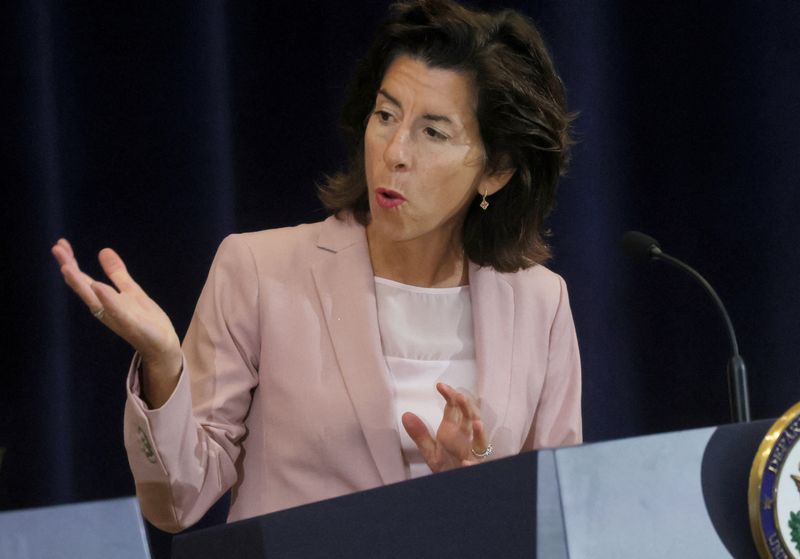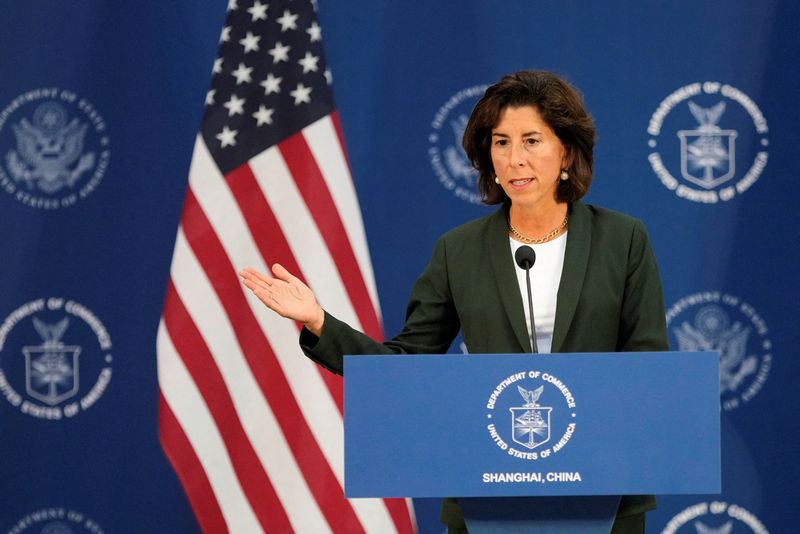By David Shepardson
WASHINGTON (Reuters) -The Biden administration on Monday named 31 U.S. regional technology hubs from 370 applicants, making the areas eligible for $500 million in federal funding to help spur innovation across a variety of sectors.
President Joe Biden's "industrial policy" effort uses federal government dollars to fund prospective growth sectors from electric vehicle battery production to semiconductors and clean energy to attract more private sector investments.
"The U.S. will lead the world again in innovation across the board," Biden said at a White House event announcing the decision.
The new program aims to spread the benefits of tech sector growth beyond traditional hubs from California's Silicon Valley to Boston, said Commerce Secretary Gina Raimondo.
"Those tech ecosystems are concentrated in just a few places around the country," she told reporters. "They don't reflect the full potential of our country. ... They don't corner the market on great ideas."
The Biden administration this month announced seven "hydrogen hubs" in 16 states would share $7 billion to jump-start the emerging industry.
The designated regional tech hubs are in cities from Baltimore, Maryland, to Birmingham, Alabama, and beyond, with a focus on critical minerals, biotechnology, artificial intelligence and quantum computing, among other areas.
"People shouldn't have to move to get a good job," Raimondo said, noting many of the hubs are in small cities.
A Washington state and Idaho hub will focus on developing new materials for more fuel-efficient next-generation aircraft, while an Oklahoma hub seeks to commercialize autonomous systems in areas like agriculture and pipeline inspections. A Wisconsin program aims to develop personalized medicine.
The hub designations are no guarantee of federal funding. Raimondo said the administration next year plans to award about five to 10 of the 31 tech hubs up to $75 million each.
Congress approved $500 million for the program in August 2022 as part of the landmark "Chips and Science" law that provides $52 billion for U.S. semiconductor production and research to better compete with China.

Biden this year asked Congress for $4 billion to fund additional regional tech hubs. Congress has not yet approved a full-year budget for the current fiscal year.
Voters rank the economy and inflation highest among their concerns. Biden, a Democrat with a 40% approval rating, is seeking another four-year term in the 2024 presidential election. Economists polled by Reuters expect data on Thursday to show that U.S. output grew at a 4.3% inflation-adjusted rate in the third quarter.
